Press freedom becomes a test case for Swiss foreign policy
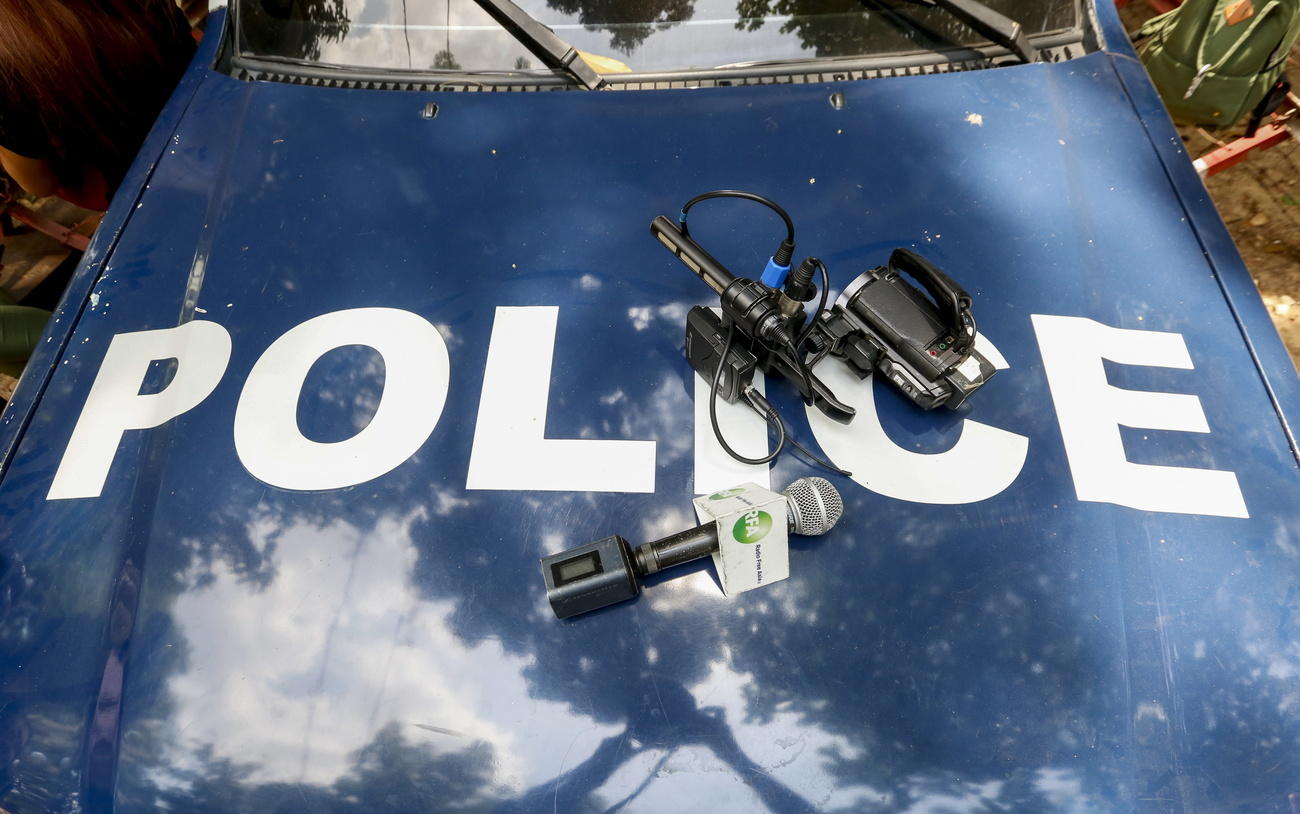
When a prominent Saudi columnist was assassinated last year, Switzerland opted out of a joint condemnation of the killing, leaving journalists and their advocates wondering how serious Bern was in its efforts to lobby for global press freedom.
It was a rare international move to sharply rebuke Saudi Arabia for its human rights record some six months after the journalist Jamal Khashoggi was killed at the Saudi consulate in Istanbul. All European Union member countries, along with several others, were on board to sign the statement in Geneva calling on the Gulf state to cooperate with a United Nations rapporteur’s inquiry into the murder. But Switzerland declined to join in.
Reporters without Borders (RSF) Switzerland strongly condemned that decision, says its secretary-general, Denis Masmejan. “Switzerland is traditionally a country that defends human rights, particularly freedom of expression and the press.”
The case reflects the fine balancing act by Swiss officials of aligning the country’s values with economic interests and its long-held neutrality. The reaction to Khashoggi’s death and recent policy moves show that Bern still prefers private rebukes to public pressure, but new initiatives to protect media freedom could nudge the country to take on a more visible role on the global stage.
Not long after the Saudi journalist’s killing in 2018, Switzerland issued a joint statement with other countries at the Paris Peace Forum to express concern for threats to freedom of the press and signal a common intent to work on an “information and democracy” project inspired by an RSF-led initiativeExternal link. And just this summer, Switzerland signed a Global Pledge on Media FreedomExternal link initiated by Canada and the United Kingdom.
The pledge, which was unveiled at the first global conference for media freedom in London in July, “is intended to address ongoing violations and abuses of media freedom around the world by committing countries to working together” on these, says Kristen Ambler, Political Counsellor at the Canadian embassy in Bern.
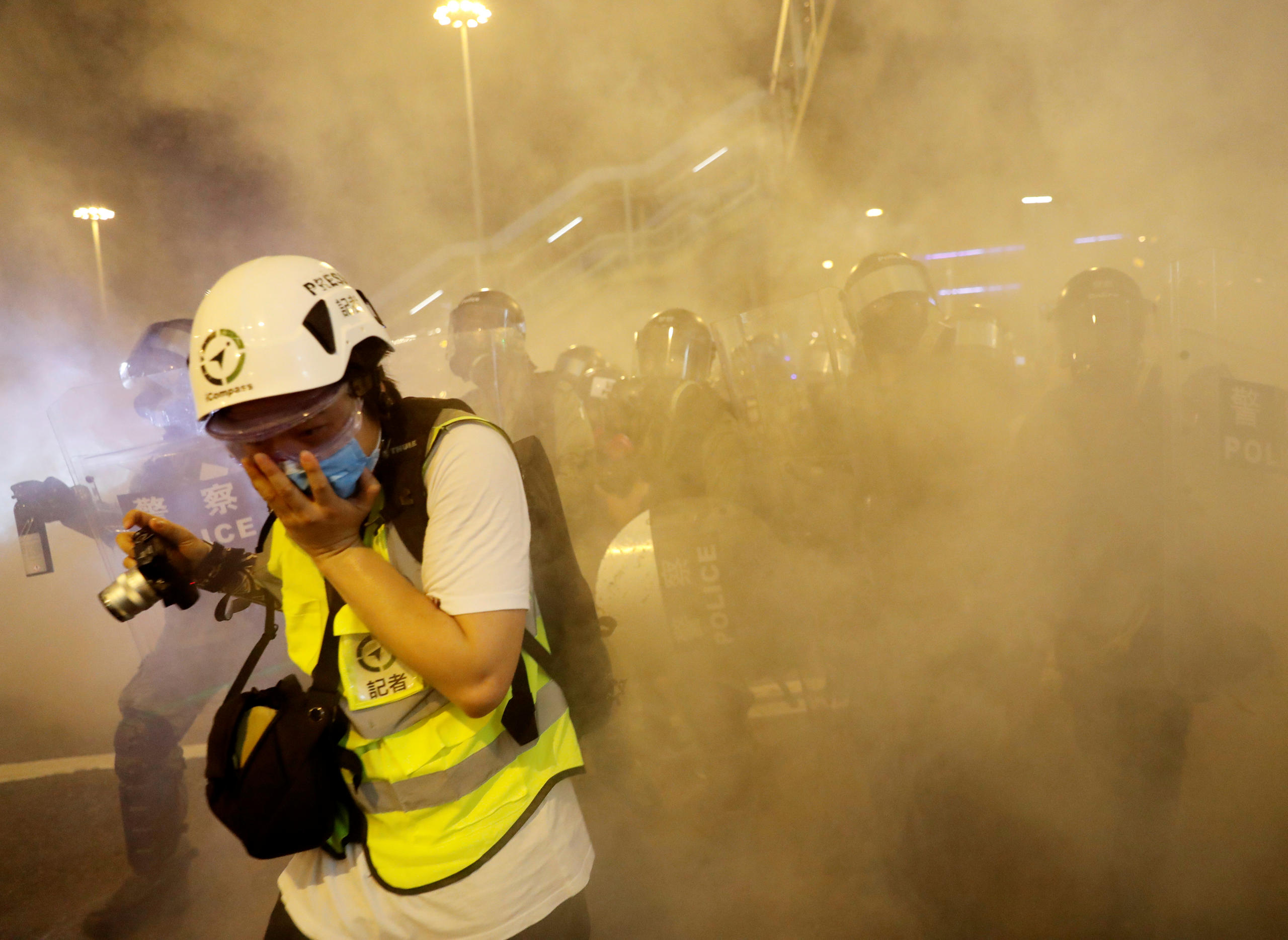
More
These journalists fled to Switzerland because of their work
Some 26 countries have signed on to the pledge, with an updated list of signatories to be released on the sidelines of the next UN General Assembly in New York this month, Ambler adds.
‘Similar crimes will be repeated’
Critics, however, remain wary of the impact that such texts will ultimately have, given the degree of international reaction to cases like Khashoggi’s. His murder, like other instances of violence against journalists and the muzzling of the media, has tested countries’ true willingness and ability to stand up for media freedoms in specific cases that go beyond making broad declarations.
“There has been little effective international response” to the Saudi journalist’s death, Agnès Callamard, the UN Special Rapporteur on extrajudicial executions, wrote in The Washington PostExternal link. Sanctions brought by some countries against individuals linked to the killing “fail to address the responsibility of Saudi senior leadership.”
“Without international action, it is clear that similar crimes will be repeated,” added Callamard, arguing that the UN Secretary-General should open an investigation, as has been done before in cases of political assassinations.
She also believes the UN should establish an independent mechanism for “criminal investigations into targeted killings of journalists and human rights defenders”.
While the Global Pledge for Media Freedom was being signed in London, a group of NGOs, including RSF International, urged countriesExternal link to adopt and fund Callamard’s proposal for such a mechanism. Expressing some skepticism about the Global Pledge, the NGOs listed a series of steps states should take to “hold themselves and their counterparts accountable” for the imprisonment, killing and attacking of journalists, and “show demonstrable progress.”
Private rebukes
Asked how Switzerland responded to Khashoggi’s killing and that of journalist Daphne Caruana Galizia in Malta in 2017, Pierre-Alain Eltschinger of the Department of Foreign Affairs says that, when it comes to individual cases, the Alpine nation “addresses the issue at the bilateral level”, and in multilateral forums for the “most worrying situations”. He adds that officials raised the case of the Saudi dissident “at the bilateral level on several occasions, as well as at the Human Rights Council in Geneva”.
To honour the media freedom pledge, “concrete actions are in the interest of Switzerland,” says the foreign affairs spokesperson. He points to the creation of a “Media Freedom Coalition” that will allow states who have signed the pledge to coordinate their international efforts.
Switzerland is involved in various other press freedom initiatives, says Eltschinger, such as a partnership with UNESCO to strengthen freedom of expression in French-speaking Africa, or a project through the Organisation for Security and Cooperation in Europe to improve the online security of women journalists.
Preserving the democratic process
Besides ensuring the rights of the press are respected, NGOs are also worried about preserving a “communication and information space [that] allows rights and democracy to be exercised”, as a declarationExternal link accompanying RSF’s Initiative for Democracy and Information states. Current threats, according to the authors of the declaration, include political control of the media and online “disinformation”.
Last month, the RSF initiative got some high-profile support when the G7 group of states unanimously backed a political process, the so-called Partnership on Information and Democracy, that would “make it possible to implement concrete guarantees”, according to RSF InternationalExternal link.
Eltschinger says that the foreign affairs ministry is “currently studying the possibility” of Switzerland’s joining the partnership, which is set to be signed by some countries on the margins of the UN General Assembly later this month.
Until the partnership is unveiled in New York, it remains unclear what it actually entails in terms of concrete commitments.
For Masmejan of RSF Switzerland, he has no doubt which way the Swiss decision should go. “This text, which is not legally binding, lays the groundwork for ensuring that citizens are provided with free and reliable information, which is a prerequisite for the proper functioning of a democracy,” he writes in an email.
To mark the International Day of Democracy (September 15), the Canadian embassy in Bern, together with the British embassy and swissinfo.ch, is organizing a panel discussion on disinformation and its impact on the democratic process. Taking place on September 12, the panel features experts Samantha Bradshaw, a researcher at the Oxford Internet Institute, and Fabrizio Gilardi, a professor of policy analysis at the University of Zurich. The discussion will be moderated by swissinfo.ch journalist Geraldine Wong Sak Hoi. Admission is free and open to the publicExternal link.
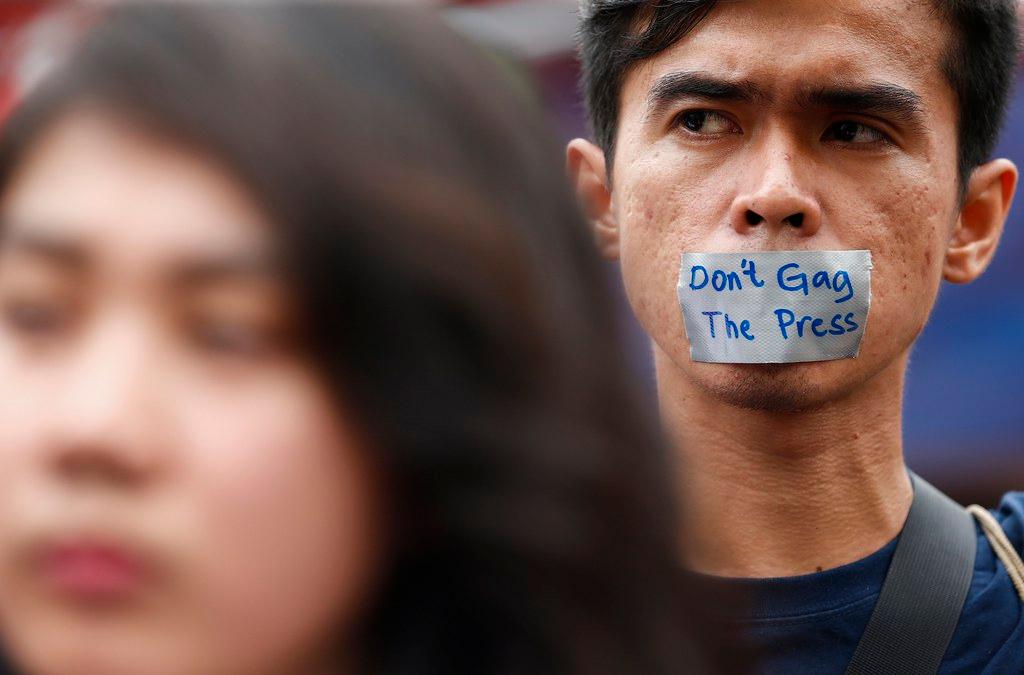
More
Freedom of the press: a slow death?

In compliance with the JTI standards
More: SWI swissinfo.ch certified by the Journalism Trust Initiative









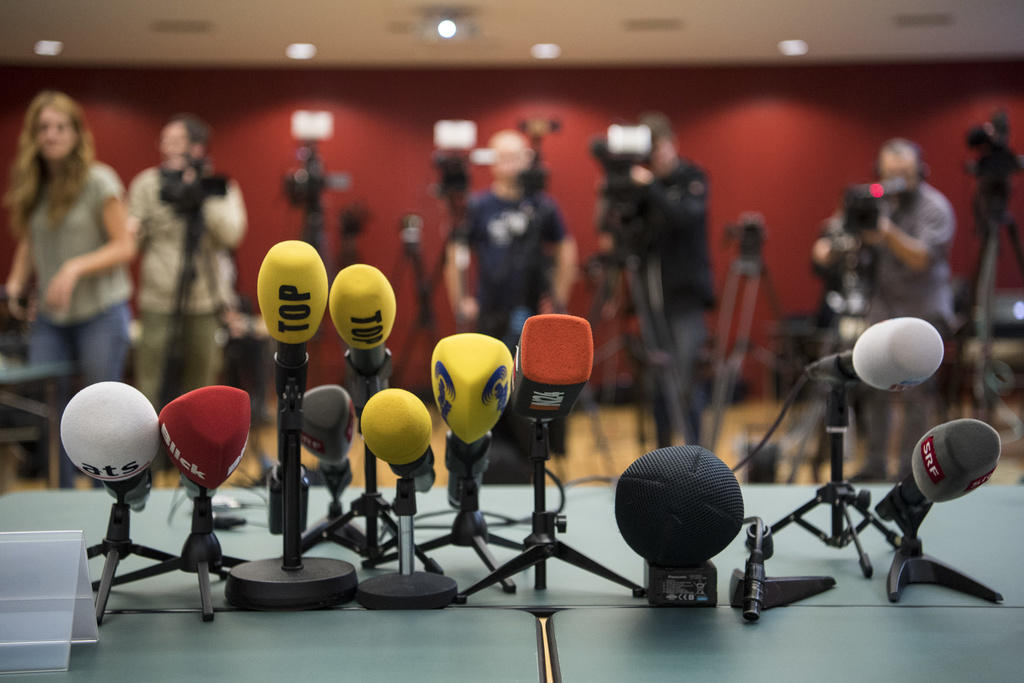
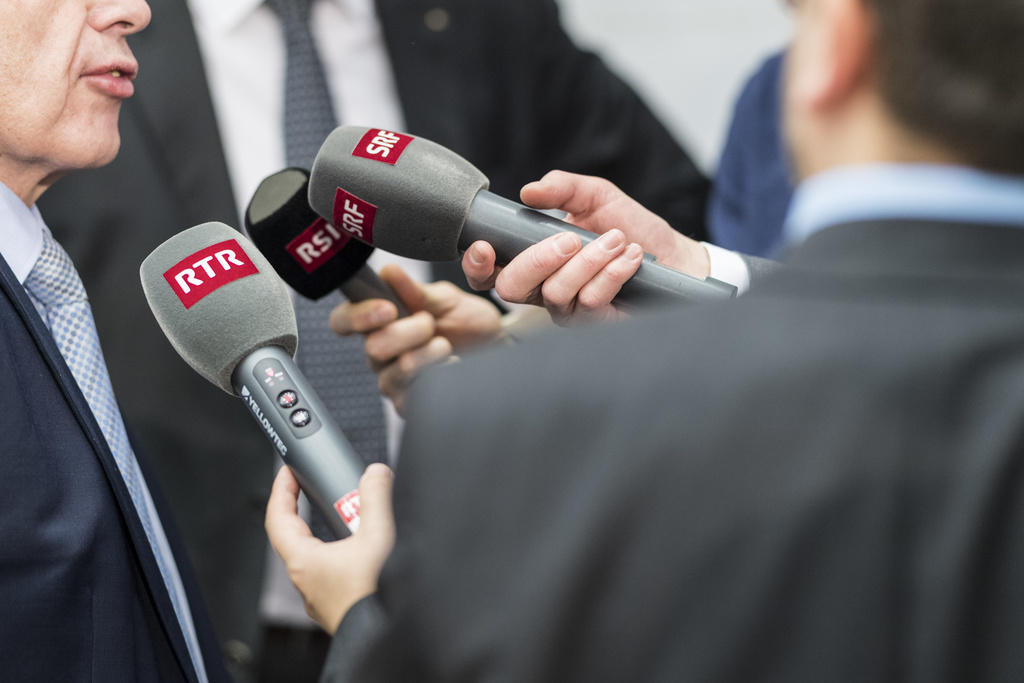
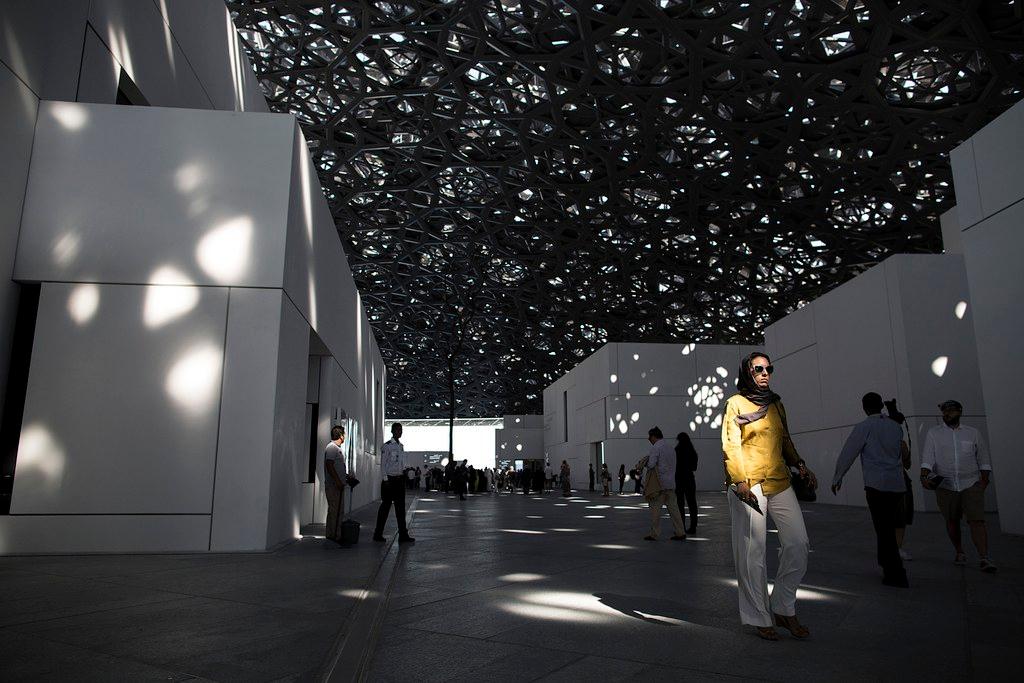
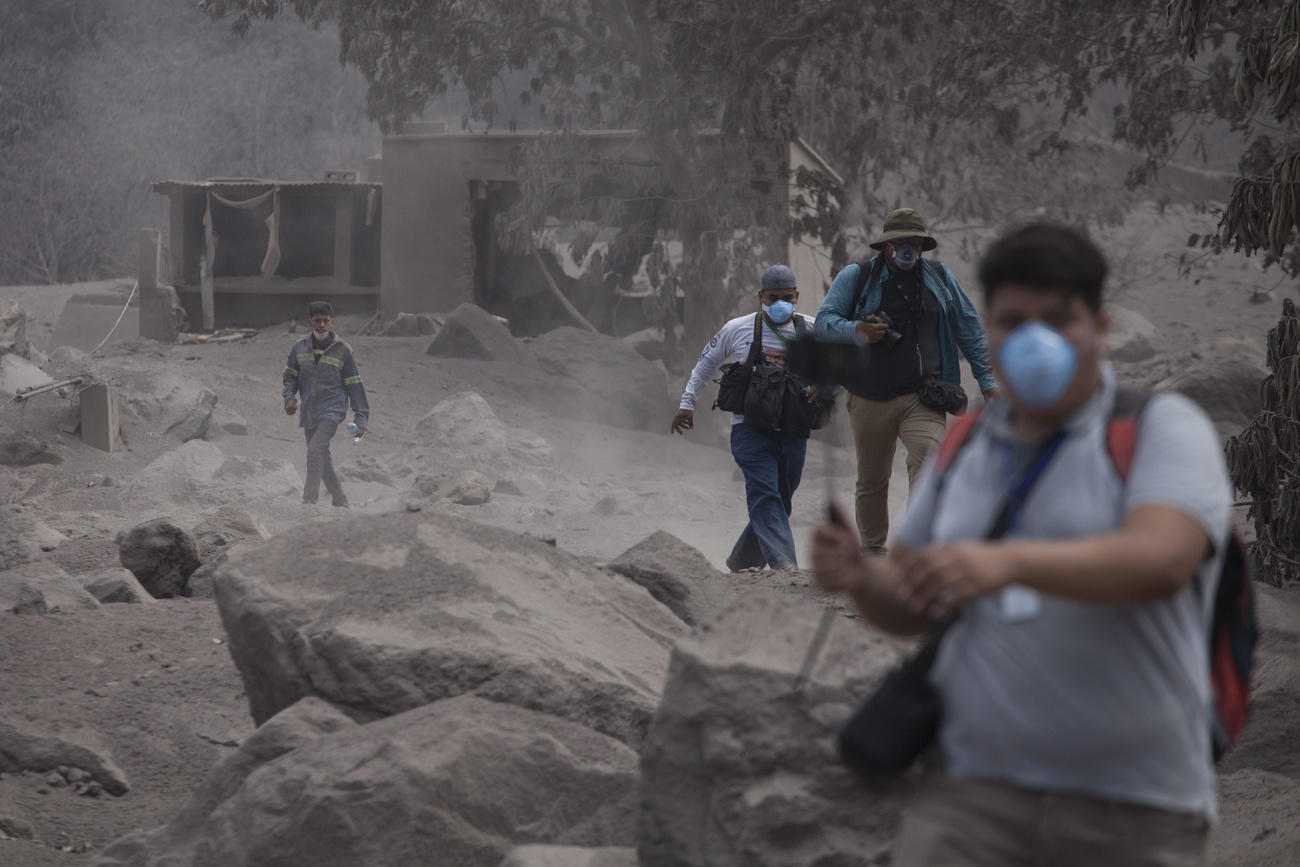
You can find an overview of ongoing debates with our journalists here . Please join us!
If you want to start a conversation about a topic raised in this article or want to report factual errors, email us at english@swissinfo.ch.